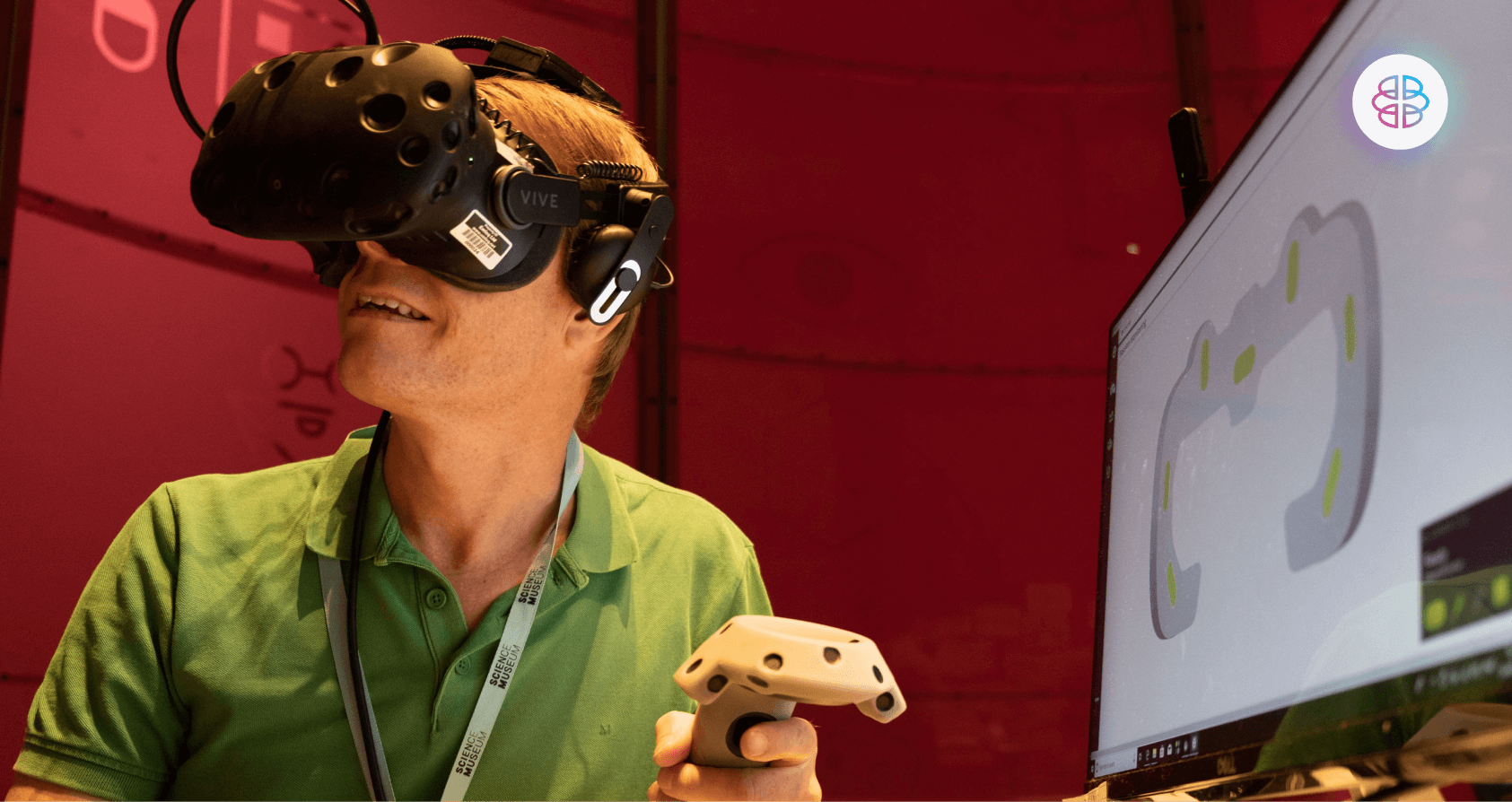Immersive technology is an emerging and constantly changing field. As a result, it currently remains largely unregulated, meaning unvetted innovations could potentially employ dangerous or unethical practices.
emteq labs invited experts from the XR Safety Initiative – a worldwide not-for-profit organisation that promotes privacy, security, and ethics in immersive environments – to discuss how we can ensure safe development of XR.
Led by Dr James Somauroo, host of The Health-Tech Podcast, healthtech contributor for Forbes and founder of health communications agency somX, the roundtable experts included:
- Rachel Michelson – Medical XR advisor at XRSI. Rachel holds a degree in computer engineering from MIT and has experience in software development for public safety and cybersecurity evaluation of IoT and medical devices.
- Walter Greenleaf – Neuro and behaviour scientist and medical technology developer at Stanford University and Colorado Mental Health Innovation Centre. With over three decades of research and development experience, Walter is considered a leading authority in digital medicine and medical XR technology. He also works as an advisor to start-ups, pharmaceutical and medical device companies.
- Dr Charles Nduka – Consultant plastic and reconstructive surgeon specialising in facial reanimation following facial nerve palsy. He is also co-founder and chief scientific officer of emteq labs and recently joined the XRSI as a member of the Medical Advisory Board.
What is the XR Safety Initiative (XRSI)?
The XRSI exists to help researchers and entrepreneurs in the XR space make informed and pragmatic decisions and is the first global not-for-profit to promote privacy, security, and ethics in immersive environments (virtual reality, mixed reality, and augmented reality). The organisation’s mission is to help build safe and inclusive experiences by discovering novel cybersecurity, privacy, and ethical risks and proposing potential solutions to mitigate them. With four main functions: research investment, promotion of trust and safety standards, advisory functions and raising awareness; the XRSI brings together thought leaders, medical experts and visionaries to provide impartial, practical information about XR-related risks and opportunities.
Medical Safety and XR
“Above all, do no harm” sits at the very core of the Hippocratic Oath, but the sentiment also runs true for medical safety principles that apply to XR technologies. In the same way that these principles are adhered to when devising medical guidelines and clinical trials, stakeholders in the XR environment should actively consider potential risks to those using the technology and how they could be prevented. The acceleration of innovation during the COVID-19 pandemic led to initial compromises of privacy and safety to balance the need for rapidly adoption of new technologies to protect the public and the NHS. As a consequence, many new developments did not go through the former approval routes and, unsurprisingly, data breaches did occur and the resilience of some platforms pushed beyond limits. This clearly highlighted the need for early implementation of rigorous safety standards.
Regulation and XR
Innovation, by its very merit, occurs at pace, but this often means that regulation is frequently several paces behind technology. With the speed of new data and technologies comes innate risk and unforeseen hazards. One example is digital phenotyping, which provides health insights from sources such as eye tracking, voice analysis and mobile phone usage. Research shows that digital phenotyping has the potential to enhance diagnosis and prediction of conditions such as Parkinson’s disease, years before symptoms occur. However, there are obvious risks if such data is misused, for example, to deny purchase of products like insurance. The consensus from the expert panel acknowledged that XR is difficult to regulate as it is not straightforward to classify and it depends largely on context.
To add further complexity, classification of a VR experience as a medical or therapeutic device would significantly affect regulation. Regardless, classification, consent and intentional design are crucial in developing ethical XR applications as it is critical to be completely transparent about why, how and where data will be used.
What’s next?
Safely translating research into practice requires large medical devices and pharmaceutical companies to collaborate with entrepreneurs and academic research groups. Alongside product validation studies by academic groups, collaborators can explore and utilise the potential of XR technologies ensuring safe, productive and effective application in clinical care.
With so many stakeholders in the XR industry, it can be challenging to assign clear responsibility for advancement of regulation and safety as well as development and upholding of codes of ethics and best practice. Laws and governments exist to protect society as a whole but there must also be a common understanding amongst those developing the space.
Changing Healthcare
Healthtech as a broader sector is behind the regulation curve, but with rapid changes in care delivery it is important to embrace the technology but bring regulation alongside as a priority, particularly in the context of an ageing population and the increasing prevalence of mental health conditions. The expert panel concluded in unanimous agreement that ultimately an aggressive and proactive approach to privacy, safety and regulatory challenges is required to avoid counter-productive misuse whilst harnessing the full potential of immersive technology.
In two weeks’ time, tune into part two of the Safety in XR roundtable on the Emotion Lab to hear about the personalisation of XR and its potential for global impact.
Get in touch with emteq labs:
www.emteqlabs.com | info@emteqlabs.com
Get in touch with the guests:
https://www.linkedin.com/in/waltergreenleaf/
https://www.linkedin.com/in/rmichelson/
To learn more about the organisations and initiatives mentioned in the podcast:
- https://xrsi.org/
- Virtual human interaction lab at Stanford –https://vhil.stanford.edu/
National mental health innovation centre at the Univestity of Colorado – https://www.cuanschutz.edu/centers/national-mental-health-innovation







